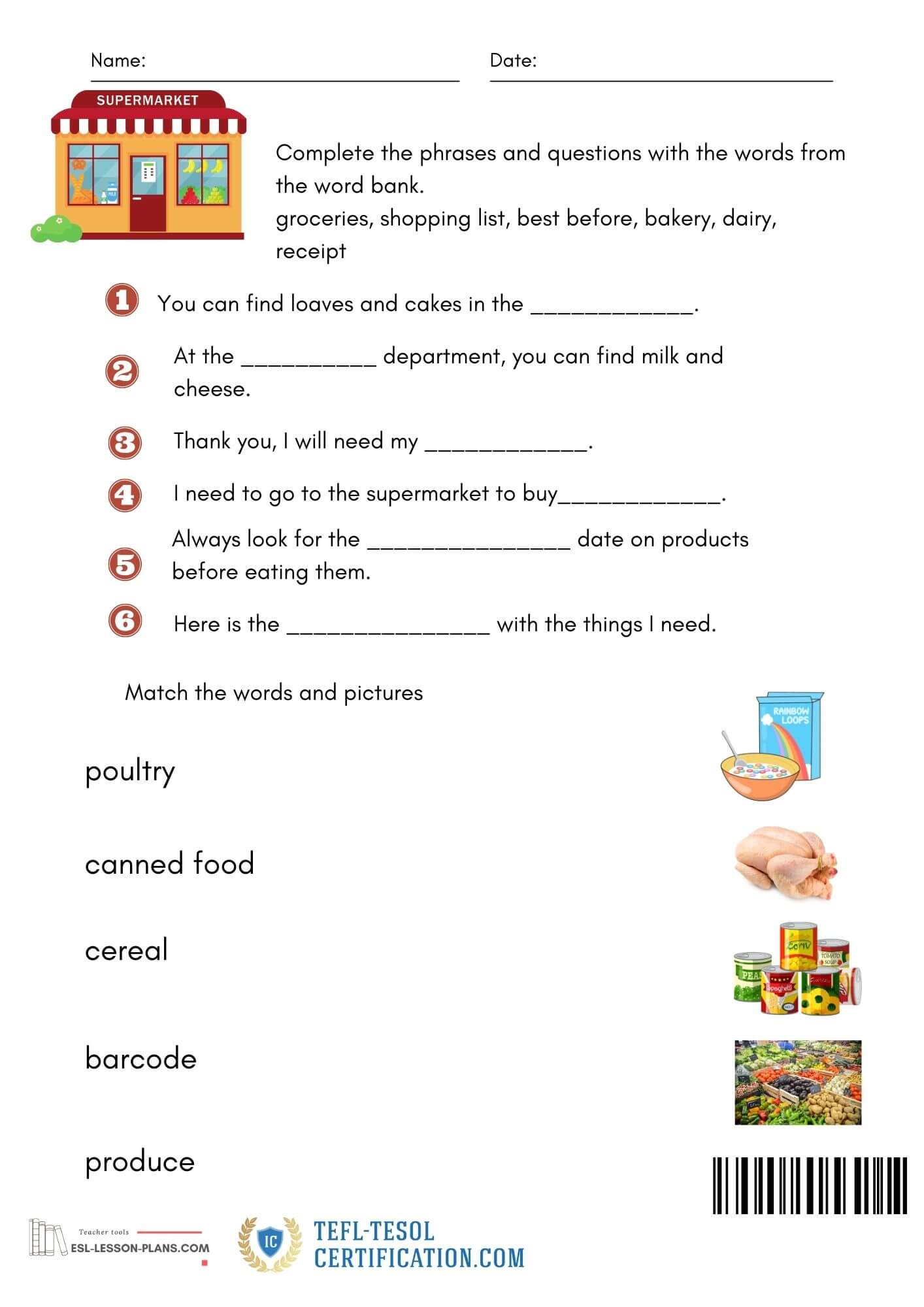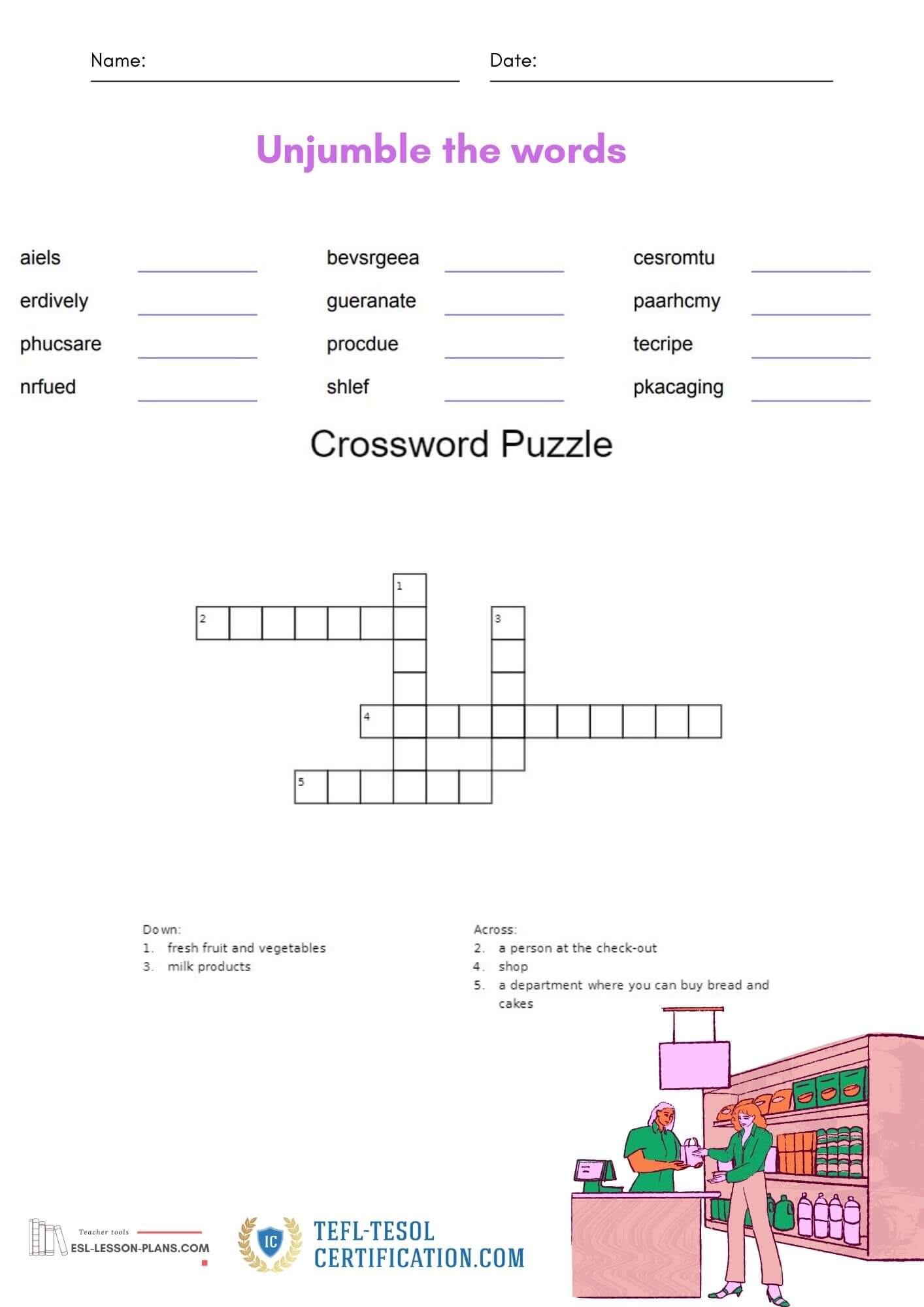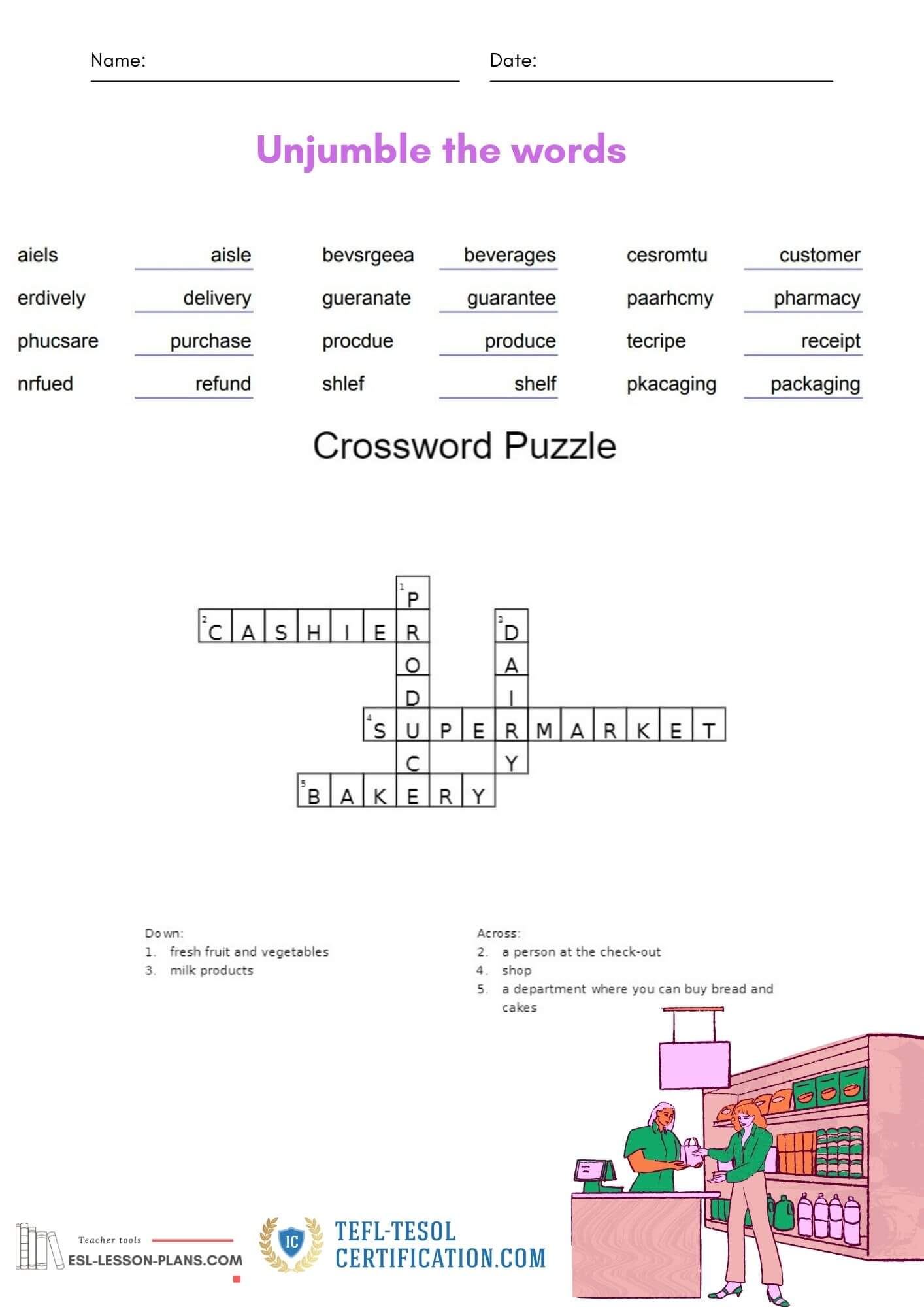Liked the article?
Share with friends!
Practicing Supermarket vocabulary. Activities and hints for EFL & ESL teachers
_large.jpg)
The primary approach to teaching English as a foreign language is, without a doubt, Communicative Language Teaching (CLT). As the name suggests, the main focus of this method is to enable students to use English as a practical tool for communication. The objective is not to delve into academic or creative aspects of the language. Instead, EFL and ESL teachers should bear in mind that students need to be proficient in speaking and understanding English for everyday interactions.
While it may not be reasonable for students to learn Shakespeare's poems, engaging in activities that involve practical vocabulary related to everyday life, such as supermarket shopping, holds more significance. After all, the ability to navigate common daily activities like buying groceries is an essential aspect of our lives.
Get your TEFL TESOL certification
Travel, work online, get a job abroad, or be
an EFL and ESL teacher in your country.
As always, I'll be sharing some worthwhile activity ideas and providing a concise list of useful English vocabulary for you to incorporate into your lessons.
Every lesson should commence with a warm-up, which can take the form of a game or a simple discussion.
Possible discussion questions could include:
- For a lesson centred around supermarkets, let's focus on two crucial phrases: 'go grocery shopping' and 'do grocery shopping.' Please write them on the board, underline them, and explain the difference between the two.
- In your family, who is responsible for doing grocery shopping?
- When it comes to purchasing groceries, do you prefer buying products online or going to the physical store?
- How do you feel about discounts? Do you actively search for discounted products when shopping for groceries?
- On average, how often do you go grocery shopping each week or month?
- What percentage of your monthly income do you typically spend on groceries?
- When deciding where to go grocery shopping, do you usually opt for a large supermarket or a convenience market closer to home?
Feel free to add any other relevant questions for your discussion:
- Have you ever had any interesting or memorable experiences while grocery shopping?
- What factors do you consider when deciding where to do your grocery shopping?
- How has the trend of online grocery shopping impacted your shopping habits, if at all?
- Are there any specific items or products you always prioritize when shopping for groceries?
- Do you follow a particular budget or shopping list when you go grocery shopping, or do you prefer to improvise?
- Have you noticed any changes in grocery prices or availability over the past year?
- Are there any special dietary requirements or preferences that influence your grocery choices?
Moving on to guided practice, I've prepared a set of new vocabulary words and activities for your students to practice:
Vocabulary Supermarket List:
- aisle
- bag
- bakery
- barcode
- basket
- beverages
- buy
- canned goods
- cart
- cashier
- change
- check-out
- coins
- cosmetics
- coupon
- credit card
- customer
- dairy products
- debit card
- delivery
- department
- discount
- express lane
- freezer
- frozen food
- guarantee
- household goods
- meat
- on sale
- packaging
- pet supplies
- pharmacy
- price
- produce
- purchase
- rack
- receipt
- refund
- return policy
- sales tax
- scales
- self-check-out
- sell
- shelf
- shop
- supermarket
- supervisor
Activities for English lesson. Supermarket topic:
- Wordsearch: Find the grocery-related words hidden in the puzzle.
- Unjumble the words: Rearrange the letters to form the correct grocery terms.
- Crossword: Complete the crossword puzzle using the given vocabulary words and clues.
- Fill in the blanks: Fill in the missing words from the vocabulary list to complete the sentences.
Please download the worksheets to engage in these activities and reinforce students’ understanding of the new vocabulary.


Completing this task is optional, and students have the option to take the worksheets home for further practice. As the teacher, your goal is to introduce new words and provide ample opportunities for students to actively engage with and practice them, making these words part of their active vocabulary.
To facilitate guided practice, I have prepared a variety of worksheets for you to choose from. Select the ones that best suit your class's learning style, and we will proceed to the next step, where students can work more independently under your guidance.
Remember, the key is to ensure students grasp and retain the new vocabulary, so they can confidently use these words in everyday situations. Once you've chosen the appropriate worksheets, you can proceed with the next stage of the lesson.



You can continue to explore and play with words by encouraging students to create sentences or even whole stories using as many new words as possible. One engaging activity is to divide the class and the words into two groups. Each team receives 25 words and their task is to construct a story incorporating all of these words. The opposing team listens carefully and crosses out the used words. To ensure active participation, every student in the team should contribute at least one sentence using one word from the list. Displaying all the words on the board during this activity can be helpful.
This exercise serves as preparation for unguided practice, where students will apply their accumulated knowledge to produce continuous speech during conversations.
Before moving to unguided practice, it's beneficial to practice listening skills, as they are essential for successful conversations. You can use a YouTube video related to the topic, and afterward, ask questions to assess students' comprehension and understanding.
By combining wordplay, storytelling, and listening exercises, you can effectively prepare students for unguided practice, where they will confidently utilize their acquired knowledge during conversations.
Before the role-play game, give students some examples of dialogues that may happen in a supermarket:
Conversation example 1:
A: Excuse me, where can I find canned beans?
B: You can find them in aisle four.
A: Which way is it?
B: It’s over there, to your right.
A: Thanks.
Conversation example 2:
A: That’s $67.25. How would you like to pay?
B: With my card.
A: Debit or credit?
B: Credit.
A: When you are ready, would you like a receipt?
B: Yes, please.
Conversation example 3:
A: Do you need a paper bag?
B: No, thanks. I have my own bag.
A: Okay, do you have our rewards point card?
B: No, but I’d like to have one.
A: You can scan this QR code, register in the system, and collect points to get discounts.
B: That’s great. I like discounts.
After presenting the examples, it is natural to divide students into pairs and have them practice supermarket conversations. Assign each pair a specific task, such as one student being the cashier or clerk, and the other student being the customer. The scenarios could involve a customer wanting to make a refund or notifying the manager that the milk's expiry date was yesterday. As the teacher, circulate among the pairs, actively listening to each student's performance, and taking notes on areas that require improvement or additional practice.
For evaluation, you can introduce a game where students sort products into different supermarket departments. Create a chart with department names and ask students to call out various products, then have them identify the department to which each product belongs. This activity reinforces their knowledge of supermarket vocabulary and organization.
Don't forget to assign relevant and interesting homework. Since all skills have been practiced during the lessons except writing, consider giving a writing assignment. This will allow students to showcase their abilities in written expression, demonstrating their comprehension of the supermarket-related vocabulary and scenarios. One option for students is to craft an extended review on social media, where they share their shopping experience in the supermarket. They have the freedom to decide whether it will be a glowing five-star review or a more critical, low-rate review. This exercise allows them to practice expressing their opinions and feedback while incorporating the supermarket-related vocabulary and scenarios they've learned.
Get your TEFL TESOL certification
Travel, work online, get a job abroad, or be
an EFL and ESL teacher in your country.
By incorporating these activities, you provide a well-rounded learning experience that enhances listening, speaking, and writing skills while making the subject engaging and applicable to real-life situations.
